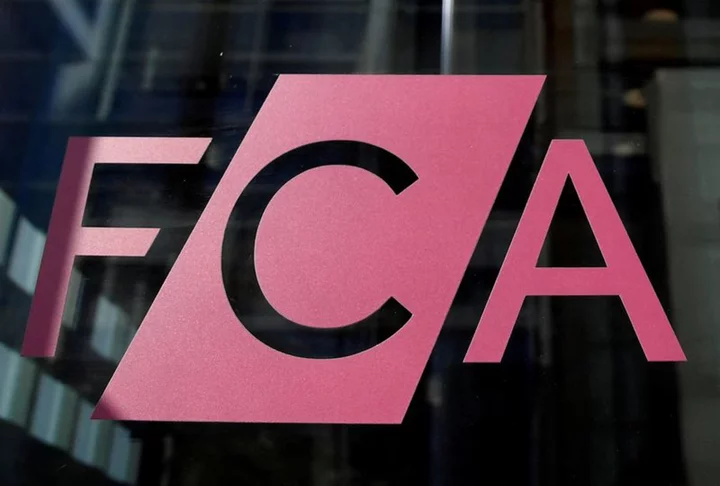By Tommy Wilkes and Isla Binnie
LONDON/NEW YORK Corporate loans whose costs are linked to environmental, social and governance (ESG) goals are being redesigned by banks in response to rising regulatory pressure and to inject more credibility into a market they hope to grow.
Sustainability-linked loans (SLL), which were first used in 2017, offer slightly cheaper borrowing, typically around 2.5-10 basis points less, if companies meet goals such as cutting their carbon emissions or improving board diversity.
Banks need to balance tougher standards without killing demand for SLLs, which unlike loans tied to specific projects allow borrowers to use the money raised however they choose, as they count towards lenders' own sustainable finance commitments.
"There is no more hype," said Constance Chalchat, chief sustainability officer for BNP Paribas Corporate and Institutional Banking. "If you are not 100% bulletproof, it can create greenwashing or reputational risks."
Of 14 major banks reviewed by Reuters, JPMorgan was the only one which did not automatically count labelled loans and bonds towards its own sustainable finance target.
Amid increasing regulatory scrutiny and suggestions that SLLs enable companies to inflate their green credentials, LSEG data shows issuance has slumped by 36% to $310 billion so far in 2023, from $480 billion in 2022. Total loan volumes also fell in the period, but by a less sharp 21%.
This drop is despite big SLL deals this year from repeat borrowers such as German utility RWE, automaker Ford Motors and French energy group Engie.
In a sign of how the market is changing, an Engie spokesman said the most recent documentation it had signed for SLLs, of which LSEG data shows it has agreed $4.8 billion, included "declassification" clauses.
These let banks strip the sustainability-linked label from the loans if targets are no longer deemed appropriate.
The banks' tougher standards are discouraging some borrowers from using SLLs entirely, bankers and lawyers told Reuters.
Others are first "looking at structures more closely", said Credit Agricole CIB's Head of European Corporate - Sustainable Investment Banking, Pascale Forde Maurice.
Britain's Financial Conduct Authority (FCA) warned in June of "market integrity" concerns, including weak incentives, potential conflicts of interest and unambitious goals.
The FCA said banks' remuneration incentives to hit ESG financing targets may have created potential conflicts of interest, encouraging them to accept weak corporate targets.
'SEVERE CONTROVERSY'
Banks have responded by including more penalties in SLLs that raise the borrowing cost if a company misses targets.
They are also insisting on the right to remove the SLL label for a "severe controversy", and are using untested language such as the company or its products having an "adverse impact" on the environment, the borrower's social principles or governance, said Elliot Beard, a partner at Simmons & Simmons.
They are broadening definitions of a "sustainability amendment event" too, which was traditionally invoked if an acquisition or disposal altered a firm's sustainability profile.
Beard said this is being stretched to include regulatory change, business strategy shifts and "any other event" which banks believe materially impacts sustainability goals.
"That would give lenders significant latitude to say let's get round the table and renegotiate ... I've not seen that accepted but that's what some banks are pushing for," he added.
Lenders and lawyers are also considering clauses to trigger a default, which requires immediate repayment, if a borrower is deemed to have reneged on sustainability commitments.
Already appearing in some private deals, such a clause "provides more teeth" but could scare away more borrowers, said David Milligan, partner at Norton Rose Fulbright.
The Engie spokesman said the utility would not agree to linking an event of default to sustainability targets.
PUBLIC SCRUTINY?
The London-based Loan Market Association, which tightened guidelines for lenders structuring SLLs alongside industry bodies in North America and Asia, says standards are improving.Its head of sustainability Gemma Lawrence-Pardew said banks and borrowers need to go further still, by publishing the sustainability elements of loans for public scrutiny.
Private lenders are also aiming to be more rigorous.
"We have stated our willingness to walk away when sustainability targets were too soft," said Brittany Agostino, vice president in the environmental, social and governance group at Los Angeles-based Ares.
"We request historical data on energy efficiency targets, and we built in safeguards to prevent companies from using M&A (mergers and acquisitions) just to meet these."
However, some doubt the value of sustainability-linked debt.
BMW completed an 8 billion euro ($8.5 billion)revolving credit facility in June, but unlike fellow automaker Porsche, decided against an SLL.
Corporate finance director Fredrik Altmann told Reuters that such debt serves BMW and its investors poorly.
"Our investors need to understand what drives BMW," he said. "That won't happen if one KPI (key performance indicator) or two KPIs decide if a labelled transaction is green or not."
(Reporting by Tommy Reggiori Wilkes and Isla Binnie; Additional reporting by Shankar Ramakrishnan in New York; Editing by Simon Jessop and Alexander Smith)

